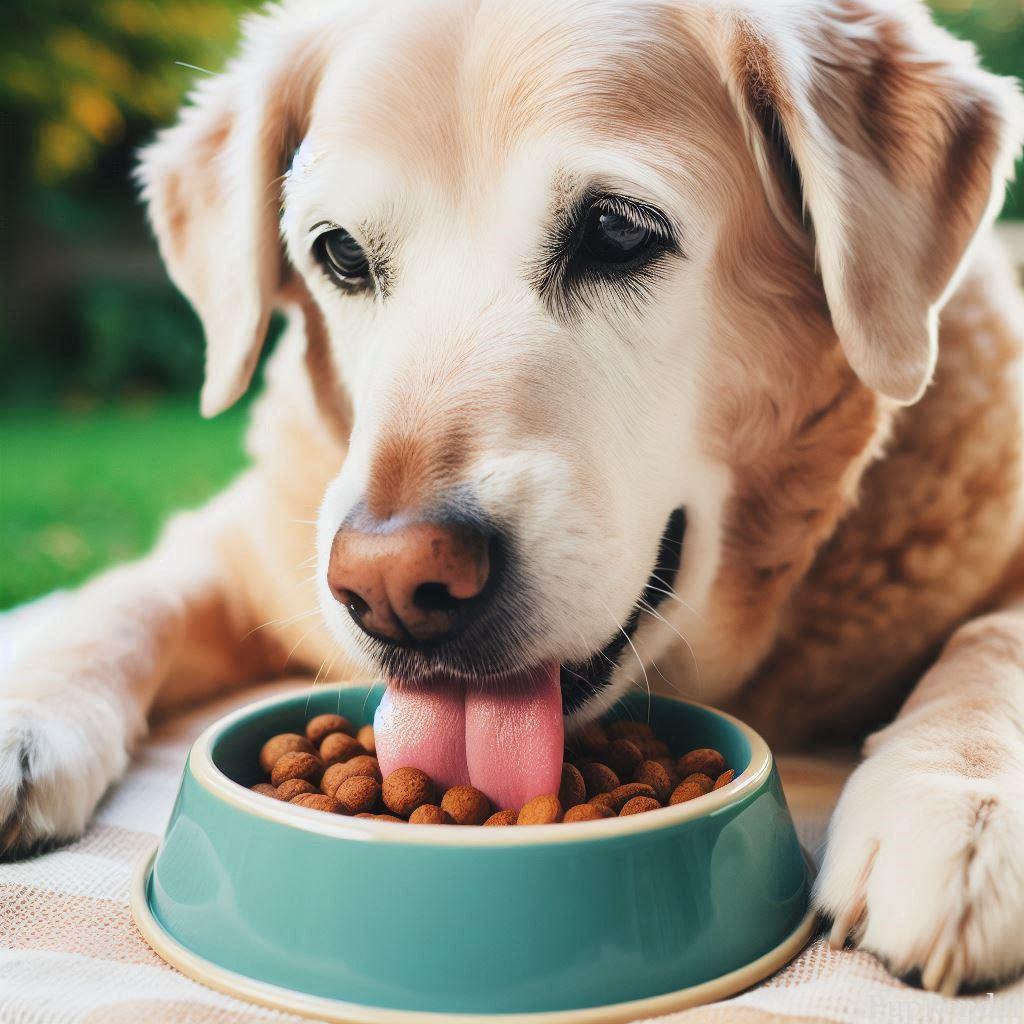The Best Diet for Senior Dogs
As dogs age, their dietary needs change just like ours do. Understanding the best diet for senior dogs is crucial for maintaining their health, energy, and overall well-being in their golden years. In this post, we’ll explore the nutritional requirements, tips, and food recommendations to ensure your furry friend stays healthy and happy as they age.

Understanding the Nutritional Needs of Senior Dogs
As dogs transition into their senior years, typically around age seven for larger breeds and ten for smaller ones, their metabolism slows down, and their activity levels decrease. This means they require fewer calories but more nutrients to maintain a healthy weight and overall health. Senior dogs benefit from a diet rich in:
- High-Quality Protein: To maintain muscle mass.
- Fiber: For digestive health.
- Omega-3 Fatty Acids: For joint support and cognitive function.
- Antioxidants: To boost the immune system.
Related Post: Learn more about the Top 7 Health Tips Every Dog Owner Needs to keep your furry companion healthy at any age.

- Alt Text: Fresh ingredients for a senior dog’s diet.
- Title: Healthy Ingredients for Senior Dog Diet.
- Caption: Fresh and nutritious ingredients like chicken, carrots, and brown rice.
- Description: A variety of fresh and healthy ingredients that are essential for a senior dog’s diet, including lean proteins, vegetables, and whole grains.
Key Components of a Senior Dog Diet
1. High-Quality Protein
Senior dogs require high-quality protein sources to help maintain muscle mass as they age. Look for lean meats like chicken, turkey, or fish. Avoid dog foods that use meat by-products as the primary source of protein, as these are often less digestible and provide fewer nutrients.
2. Fiber for Digestive Health
Fiber is essential for promoting digestive health, especially for older dogs who may experience constipation or irregular bowel movements. Ingredients like sweet potatoes, pumpkin, and brown rice are excellent sources of fiber that can be easily incorporated into your dog’s meals.
Related Post: Read more about Dog Nutrition Guide to understand what ingredients are best for your pet’s diet.
3. Omega-3 Fatty Acids for Joint Support
Omega-3 fatty acids, commonly found in fish oil, are beneficial for reducing inflammation and supporting joint health in senior dogs. They also play a crucial role in maintaining cognitive function. Adding fish like salmon or supplements to their diet can make a significant difference.

4. Antioxidants for Immune Support
Antioxidants such as vitamins E and C are vital for boosting a senior dog’s immune system. They help fight off free radicals that can cause cellular damage. Including fruits like blueberries and vegetables like spinach in their diet can provide these essential nutrients.
Related Post: Discover How to Make Your Dog Happier Than Ever by incorporating the right foods and activities.
5. Hydration is Key
As dogs age, they may not drink as much water, leading to dehydration. It’s essential to ensure that their diet contains enough moisture, especially if you feed them dry kibble. Wet food, broths, or even adding water to their meals can help keep them hydrated.
The Best Food Options for Senior Dogs
There are many commercial and homemade diet options available for senior dogs. When choosing the best food for your dog, consider their specific needs, activity level, and any existing health conditions. Here are a few options:
- Commercial Senior Dog Food: Opt for high-quality brands that specifically cater to senior dogs. Look for labels that indicate real meat as the first ingredient and are free from fillers and artificial additives.
- Homemade Meals: Preparing homemade meals allows for complete control over what your dog is eating. Ensure that meals are balanced and include lean proteins, vegetables, and whole grains. Consult with your vet or a pet nutritionist to create a well-rounded meal plan.
- Supplements: Sometimes, senior dogs may benefit from additional supplements like glucosamine for joint health or probiotics for digestion. Always consult with your vet before adding any supplements to your dog’s diet.
Related Post: Check out our comprehensive guide on How to Manage Your Dog’s Weight Effectively to learn more about maintaining a healthy weight for your senior dog.

Tips for Transitioning to a Senior Dog Diet
Transitioning your dog to a new diet should be done gradually to prevent any digestive issues. Start by mixing small amounts of the new food with their current food and slowly increase the proportion over a week or two. Always monitor for any signs of allergies or digestive upset and consult with your veterinarian if you have any concerns.
Nourishing Your Senior Dog for a Vibrant Life
Ensuring your senior dog receives the right nutrition is key to a happy, healthy life. By understanding their changing needs and providing a balanced diet tailored to those needs, you can help your furry friend enjoy their golden years to the fullest.
For more detailed information on the nutritional needs of senior dogs, visit the American Kennel Club website.





